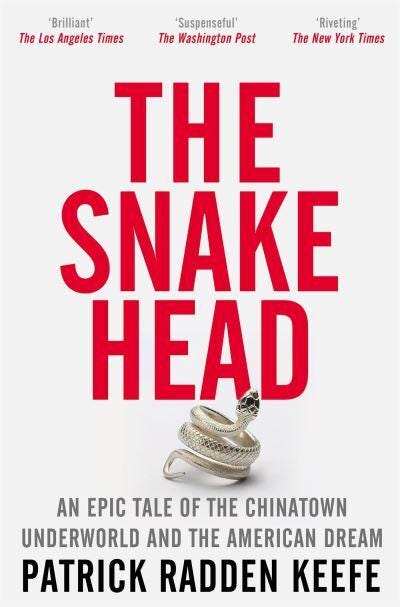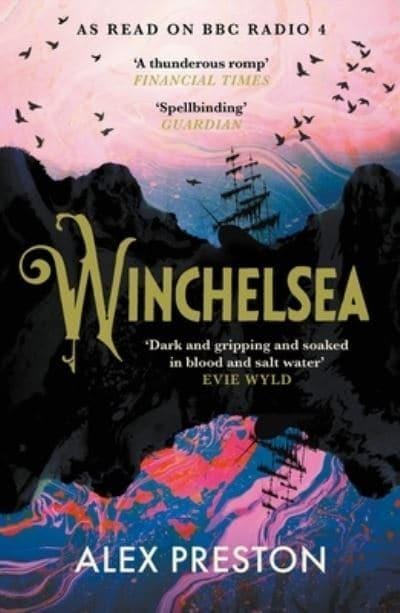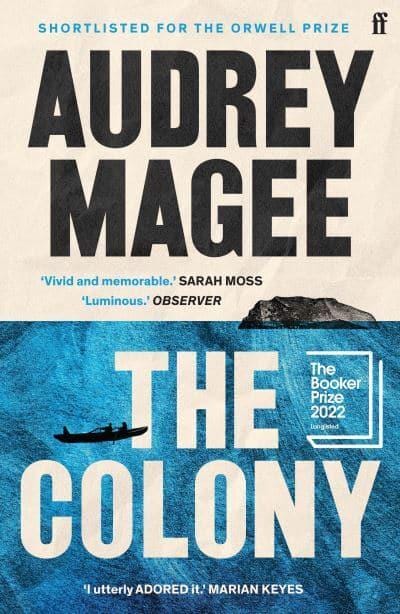Which Books Should You Be Buying This Week?
Your digest of the weekend's newspaper book reviews February 4/5
Firstly, apologies for no digest last week as I had a weekend away to visit family and what with a long drive, didn’t have time to put together a blog in time for last Sunday, but here I am, having spent much of this weekend reading all the book reviews so you don’t have to.
First up, I am going to shamelessly plug one of my own books, which many of you have been buying from my online bookshop (thank you!). A quick recap for those who don’t know that I am the ghostwriter/co-author of Wendy Mitchell’s two Sunday Times Bestsellers, SOMEBODY I USED TO KNOW and WHAT I WISH PEOPLE KNEW ABOUT DEMENTIA. You can, of course buy both in my online bookshop, and Thursday saw paperback publication day for WHAT I WISH PEOPLE KNEW ABOUT DEMENTIA. I wrote a bit about it here, for those who missed my newsletter this week. But here’s what The Times had to say about it on Saturday.
“At the age of 56 (NB, it was actually 58), NHS worker Wendy Mitchell was diagnosed with dementia. This second memoir strikes a similarly positive tone as her 2018 bestseller, Somebody I Used to Know, and gives a powerful insight into the surprising details of life with dementia – the distortions in her vision, her difficulties preparing food, her hallucinations of strong odours. The book is ‘particularly powerful for those of us in medicine who need to better understand our patients’ difficulties,’ wrote Gavin Francis. ‘But it makes valuable reading for anyone.’”
Francis’ is a GP and his review of the book when it came out in hardback this time last year declared it a ‘memoir full of optimism’ which is what Wendy and myself desired for it, because let’s face it, for many dementia is a frightening topic.
But I’m unsure if Dr Francis understood my role in creating the book. He wrote at the time: ‘Wharton’s voice as co-author is absent, and I would have liked to know more about the process of writing this revelatory book. But perhaps her perspective is better silenced and Mitchell’s amplified, given how muted the voices of people with dementia have traditionally been, and how much she has to tell us.’
Of course, as a ghost my job is to be silent, people aren’t really meant to know I’m there at all. It is a little like being an actor, and for the time you are writing, you are playing the part of the author. But in Wendy’s case, it is obvious to anybody that it would be almost impossible for somebody with dementia to write a bestselling book, something that Wendy herself readily admits. Though if, like Dr Francis, you would like to know more about our process of working together, Wendy and I wrote a piece for Granta magazine answering the question: How do you write a memoir when you can’t remember.
Anyway, those who would like to order WHAT I WISH PEOPLE KNEW ABOUT DEMENTIA can do so from my online shop.
On the topic of ghostwriters, our next book is interesting for many reasons but also for the fact that it was written without one which is almost unheard of for a celebrity memoir.
LOVE, PAMELA is Pamela Anderson’s attempt at reclaiming the story of her life, and from what I’ve read of the reviews, she does this rather well without any help. But it is perhaps because her story has been told by so many others, that Pamela set out to keep this version strictly in her own words.
Jane Mulkerrins reviewing in The Times tells us that Anderson did not hold back with the juicy anecdotes in the way that other celebrity memoirs often do, there is the whirlwind romance between her and Motley Crüe’s Tommy Lee – famously married after just four days of knowing each other. The wild tales of their life together – fitting in a quickie during the interval of Cats in the West End. Name-dropping of showbiz mates like Elton John, Eminem, Amy Winehouse, Vivienne Westwood, and all the excesses of a Hollywood lifestyle, including several other marriages of hers.
“‘Reclaiming the narrative’ has become a bit of a tiring trope (yes, I’m looking at you, ‘H’ and ‘Meg),” writes Mulkerrins. “but LOVE, PAMELA grinds no axe, seeks to settle no scores and apportions no blame. ‘There is no woe-is-me in this book,’ she writes, even thanking Lee – the jealous, possessive, violent husband who drove her to a suicide attempt – ‘for being the catalyst for everything good in my life.’”
I watched the accompanying Netflix documentary, Pamela, a Love Story, at the weekend, and Pamela Anderson has done a great job of remind us all that there is a human at the heart of this caricature as drawn by the media.
The real story of a Hollywood celebrity, told in her own words, cannot fail to lift the veil on that lifestyle, and it is not without some hard knocks. You can buy LOVE, PAMELA here.
More non-fiction now and The Observer’s New Review dedicated almost two pages to THE SNAKEHEAD: AN EPIC TALE OF CHINATOWN UNDERWORLD AND THE AMERICAN DREAM. This book was originally published in America in 2009, but this edition marks its first UK publication and has gone straight to paperback which is fortunate for us as it sounds absolutely fascinating. It is written by New Yorker investigative journalist Patrick Radden Keefe, author of EMPIRE OF PAIN which won the Baillie Gifford prize in 2021 for its incisive look at the Sackler family and their role in the opioid tragedy that has devastated swathes of American society. This book, coming in at 448 pages, focuses that same incisive eye on the desperation of Chinese migrants who have parted with their cash in the hope of living the American dream, and of one Chinatown variety store owner, Sister Ping, who amassed herself a $40m fortune trading in human misery. Her existence was uncovered after a cargo ship named Golden Venture ran aground on a sandbar off New York, packed inside there were 286 undocumented people who had been travelling for four months in the darkness with little food or water and wearing the same clothes they stood up in, and had paid $18,000 a piece to ‘snakeheads’ – people smugglers – for the privilege.
“You feel the weight of evidence in every paragraph,” writes Tim Adams reviewing, “this book is based on more than 300 interviews with ‘FBI agents, police officers, immigration investigators, attorneys, White House officials, Golden Venture passengers, Chinatown residents and community leaders and individuals who work in the snake head trade.’ Even Sister Ping corresponded with him from the high-security Texan prison in which she eventually died, aged 65, in 2014.”
There is much in our own newspapers about migrants reaching our shores, or in worse case scenarios failing to and perishing in the sea, but what this book does is gives those people a voice. “The stinking hold of the cargo shop represented a better possibility than other futures,” writes Adams. “…this book is a reminder of the element of the tale that is too easily overlooked: the absolute determination of the people who temporarily sell their fate to the criminal gangs. As Radden Keefe’s book implies, those people will ultimately not be deterred by legislation or law enforcement. Sister Ping was a facilitator, not a driver of that ambition.”
Many of those who were on that original ship were deported, and yet they found another way back to New York where Radden Keefe caught up with them, they tell him about the lives they have lead, starting businesses, having families, paying taxes. Perhaps our own Home Secretary might learn a thing or two from this book.
Time magazine described it as ‘a mashup of The Godfather and Chinatown, complete with gun battles, a ruthless kingpin and a mountain of cash. Except that it's all true.'
And you can buy THE SNAKEHEAD: AN EPIC TALE OF CHINATOWN UNDERWORLD AND THE AMERICAN DREAM here.
Now some fiction paperbacks out this week and flagged up by The Times as must reads.
First up VLADIMIR by Julia May Jonas: “An English professor is called out for having affairs with his students. So far, so typically #MeTooish. But this novel about sexual mores on campus takes the story in an unexpected direction. It is narrated by his wife, who believes in open relationships and recounts her own sexual peccadilloes. A subversive, droll debut which won many admirers.”
WINCHELSEA by Alex Preston: “It is 1742 and on the south coast, the crumbling town of Winchelsea is being terrorised by a gang of ferocious smugglers, apart from the town physician, who lets them hide their swag in the tunnels that run from his house to the sea, and his children, Goody and Francis, who treat the villains as family friends. But when betrayal and murder lurch into their sheltered lives, the siblings set out on a briny adventure of their own. As well as being a swashbuckling thriller, it is also an unsentimental portrait of a violent, lucrative trade.”
THE COLONY by Audrey Magee: “It’s the summer of 1979: Lloyd, an insufferable English artist, has gone to a tiny island off the west coast of Ireland. He wants to paint in peace, the pragmatic and quietly amused islanders want his cash and JP, a bellicose visiting French linguist on a campaign to save the Irish language, wants him gone. Paint flows, tensions rise… we got excited about this beautifully written novel, thinking it might be a Booker contender. Alas, it was only longlisted by the judges. The rotters. “What a relief it is to find a novel that treats the reader as a grown-up, that is fresh without chasing literary fashion, provocative but not shouty,” wrote John Self.”
Please support THE BOOK ROOM by buying any or all of these titles in my online shop. If none of these tickled your fancy, don’t forget you can send me a custom order for ANY BOOK and I can almost always get it to you within 24/48 hours. I have some exciting news coming tomorrow and so I need all the support I can get!
Until our reviews next week…
Anna









